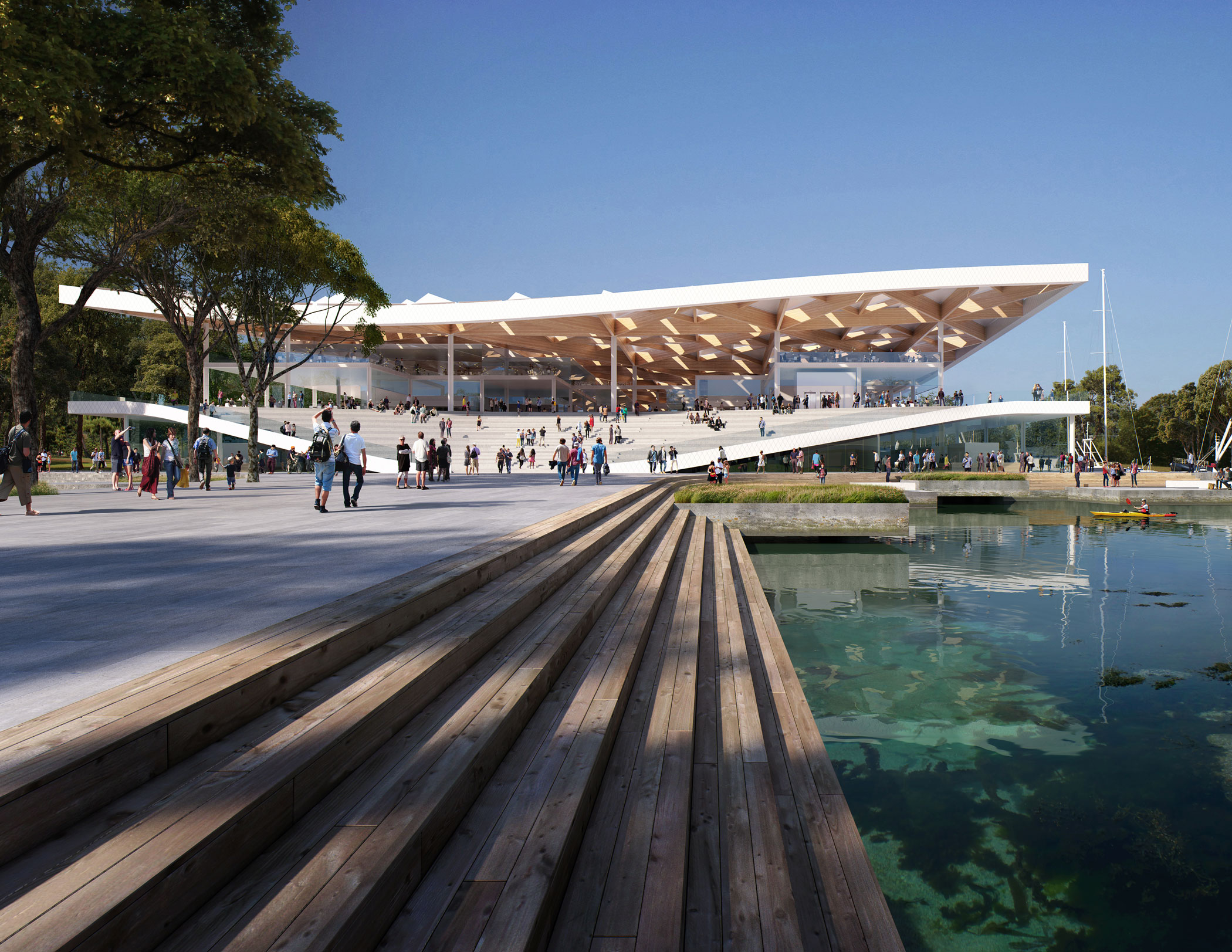Doha, Qatar
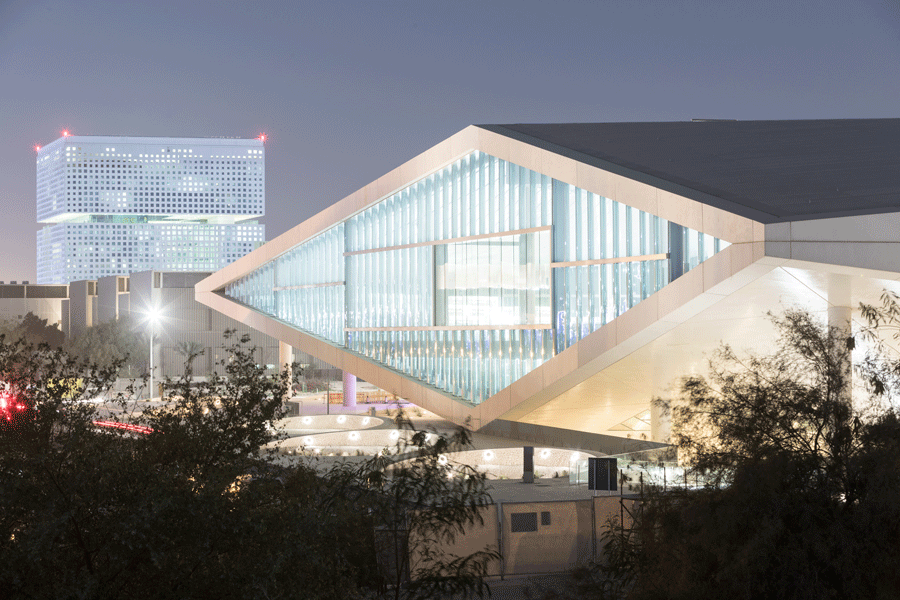
The following description is courtesy of OMA.
Qatar National Library contains Doha’s National Library, Public Library and University Library, and preserves the Heritage Collection, which consists of valuable texts and manuscripts related to the Arab-Islamic civilization. The public library will house over a million books and space for thousands of readers over an area of 42,000 m2. The library is part of the Education City, a new academic campus which hosts satellite campuses from leading universities and institutions from around the world.
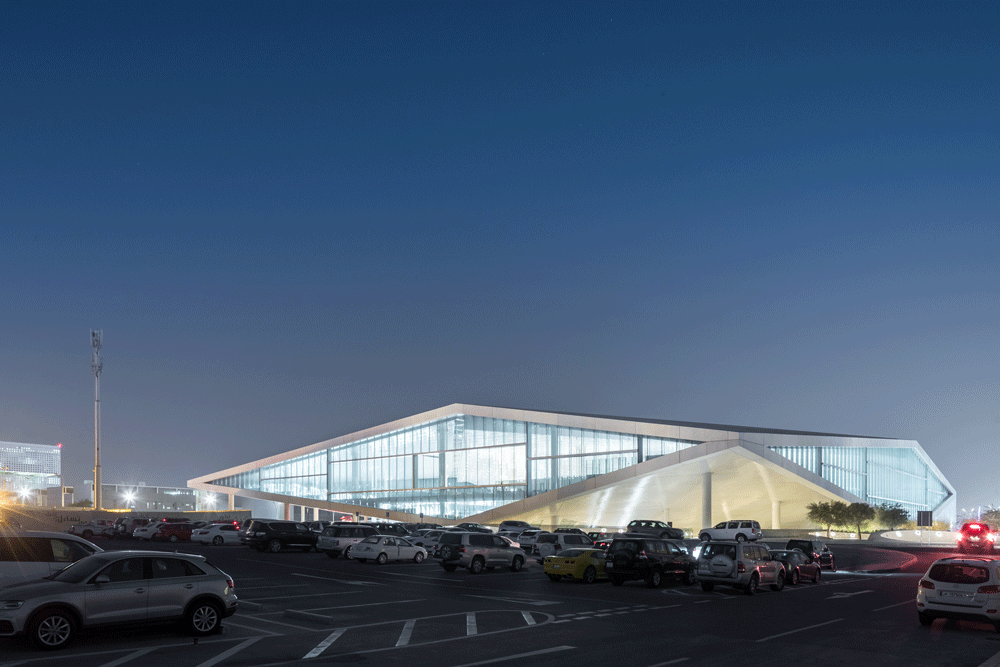
Qatar National library is the latest expression of OMA’s long-term interest in the library, which goes back to the competition for the National Library of France in 1989. At that moment, the “electronics revolution” seemed “to eliminate all necessity for concentration and physical embodiment” of knowledge (S,M,L,XL). The whole raison d’être of the library was being questioned: Would we still need libraries? Could libraries survive the digital culture?
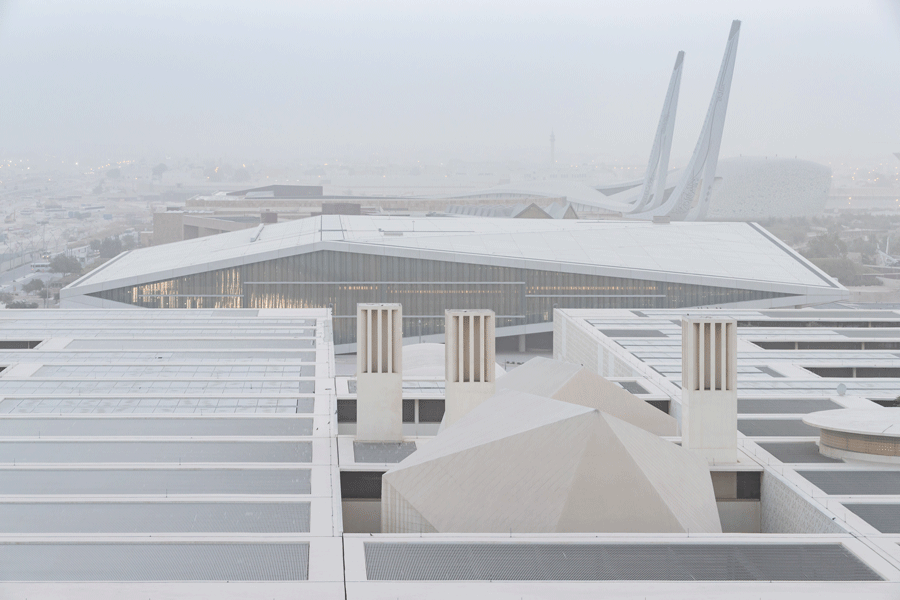
With Qatar National Library, we wanted to express the vitality of the book by creating a design that brings study, research, collaboration and interaction within the collection itself – a collection that consists of over one million volumes, among which are some of the most important and rare manuscripts in the Middle East.
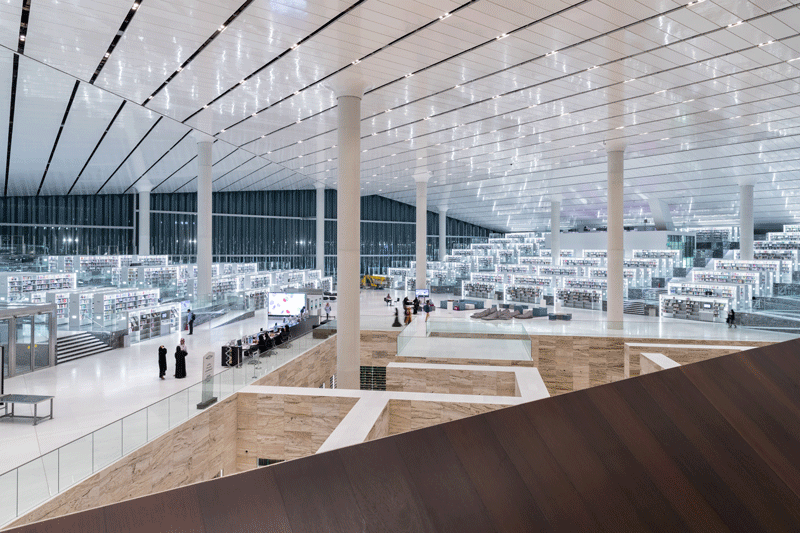
The library is conceived as a single room which houses both people and books. The edges of the building are lifted from the ground creating three aisles which accommodate the book collection and, at the same time, enclose a central triangular space. This configuration also allows the visitor to access the building at its center, rather than laboriously entering from the perimeter. The aisles are designed as a topography of shelving, interspersed with spaces for reading, socializing and browsing. The bookshelves are meant to be part of the building both in terms of materiality – they are made of the same white marble as the floors – and of infrastructure – they incorporate artificial lighting, ventilation, and the book return system.
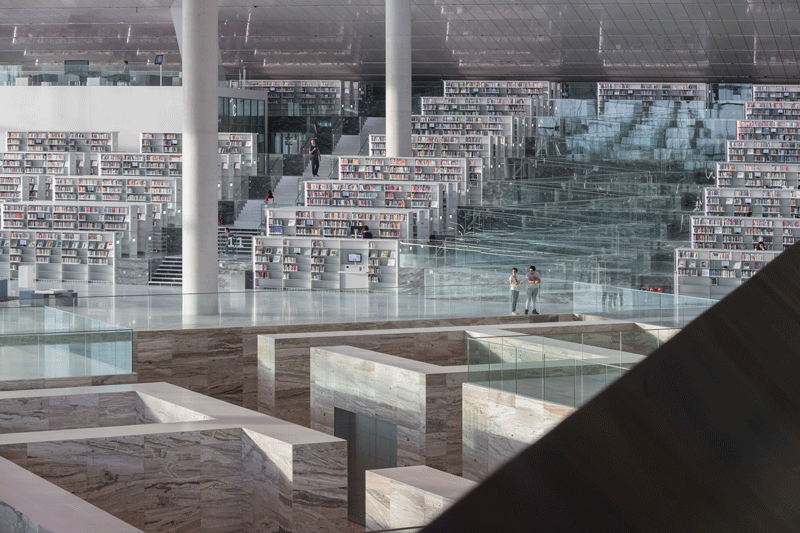
A column-free bridge connects the library’s main aisles, allowing for a variety of routes throughout the building. The bridge is also a meeting space: it hosts media and study rooms, reading tables, exhibition displays, a circular conference table, and a large multipurpose auditorium, enclosed by a retractable curtain designed by Amsterdam studio InsideOutside, who were also responsible for the landscaping.
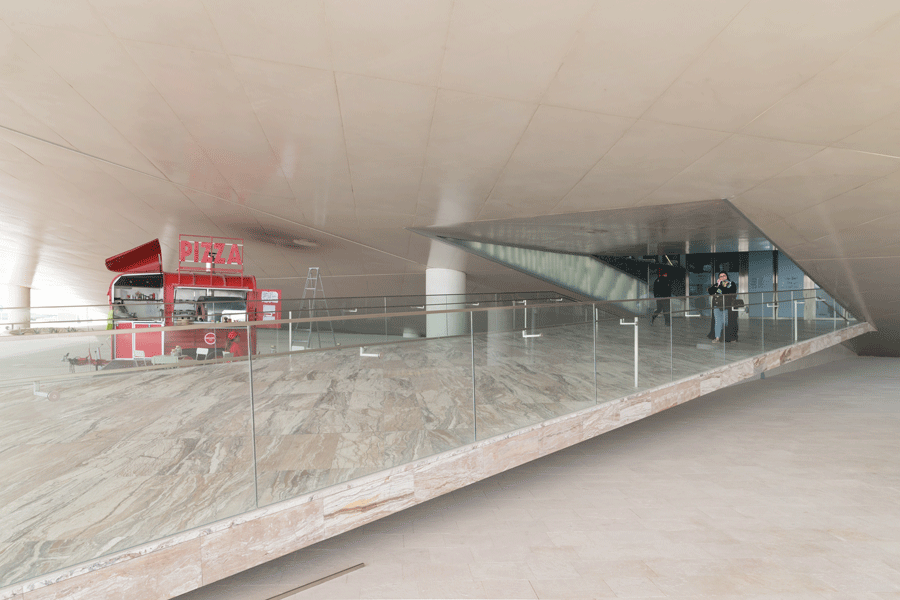
The heritage collection is placed at the center of the library in a six-meter-deep excavated-like space, clad in beige travertine. The collection can also operate autonomously, directly accessible from the outside.
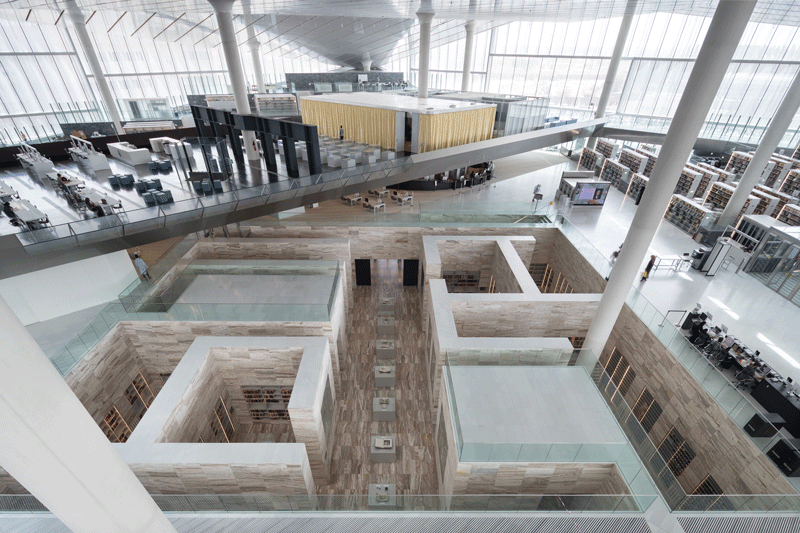
The corrugated-glass façade filters the otherwise bright natural light, creating a tranquil atmosphere for reading. The diffuse light is directed further into the core of the building by a reflecting aluminium ceiling. Outside, a sunken patio provides light to the staff office space in the basement, and at the same time acts as transition space before entering the world of books.
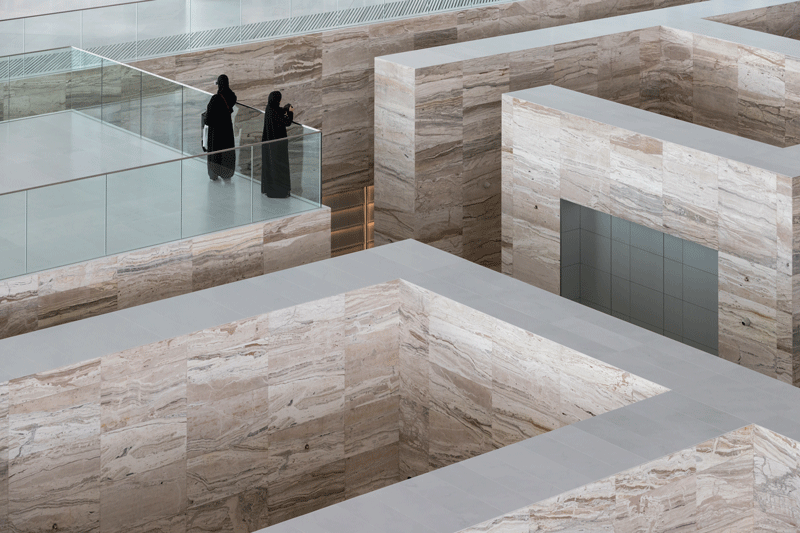
Qatar National Library plays a central role in the Education City, a project initiated by Her Highness Shiekha Mozah and the Qatar Foundation as part of Qatar’s transition to a knowledge-based economy. The master plan, designed by Arata Isozaki in 1995 and inaugurated in 2003, consists of education and research facilities, including branches of internationally acclaimed universities and the headquarters of the Qatar Foundation, also designed by OMA and completed in 2016.
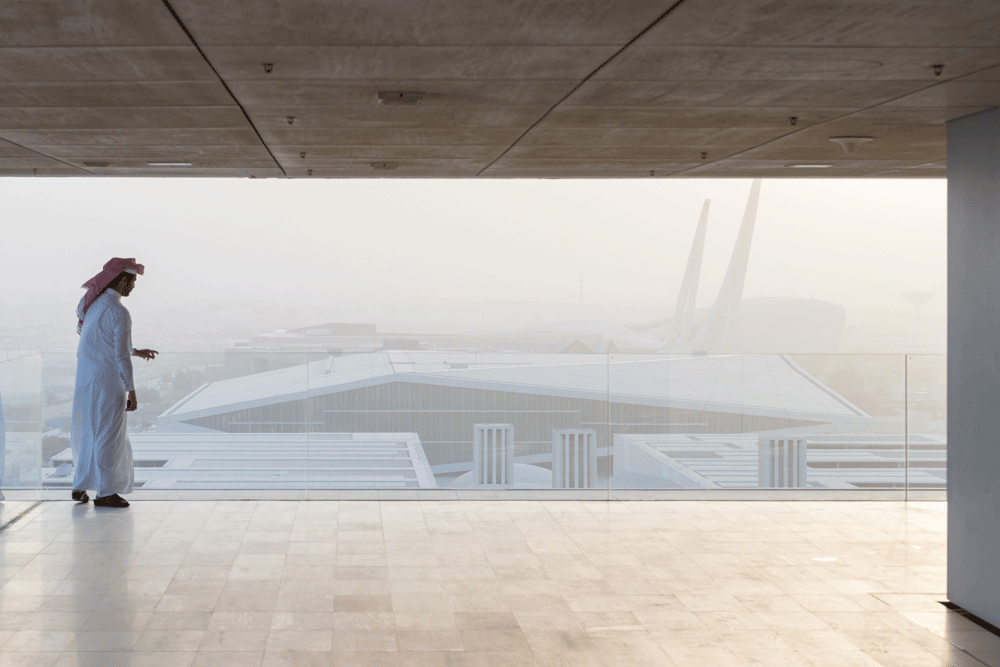
Project Details
Name: Qatar National Library, Doha
Partners in Charge: Rem Koolhaas, Ellen van Loon, Iyad Alsaka
Associate in Charge: Kunle Adeyemi
Area: 45,000 m2
Project Year: 2017
Photographs: Iwan Baan, Delfino Sisto Legnani and Marco Cappelletti, Hans Werlemann



